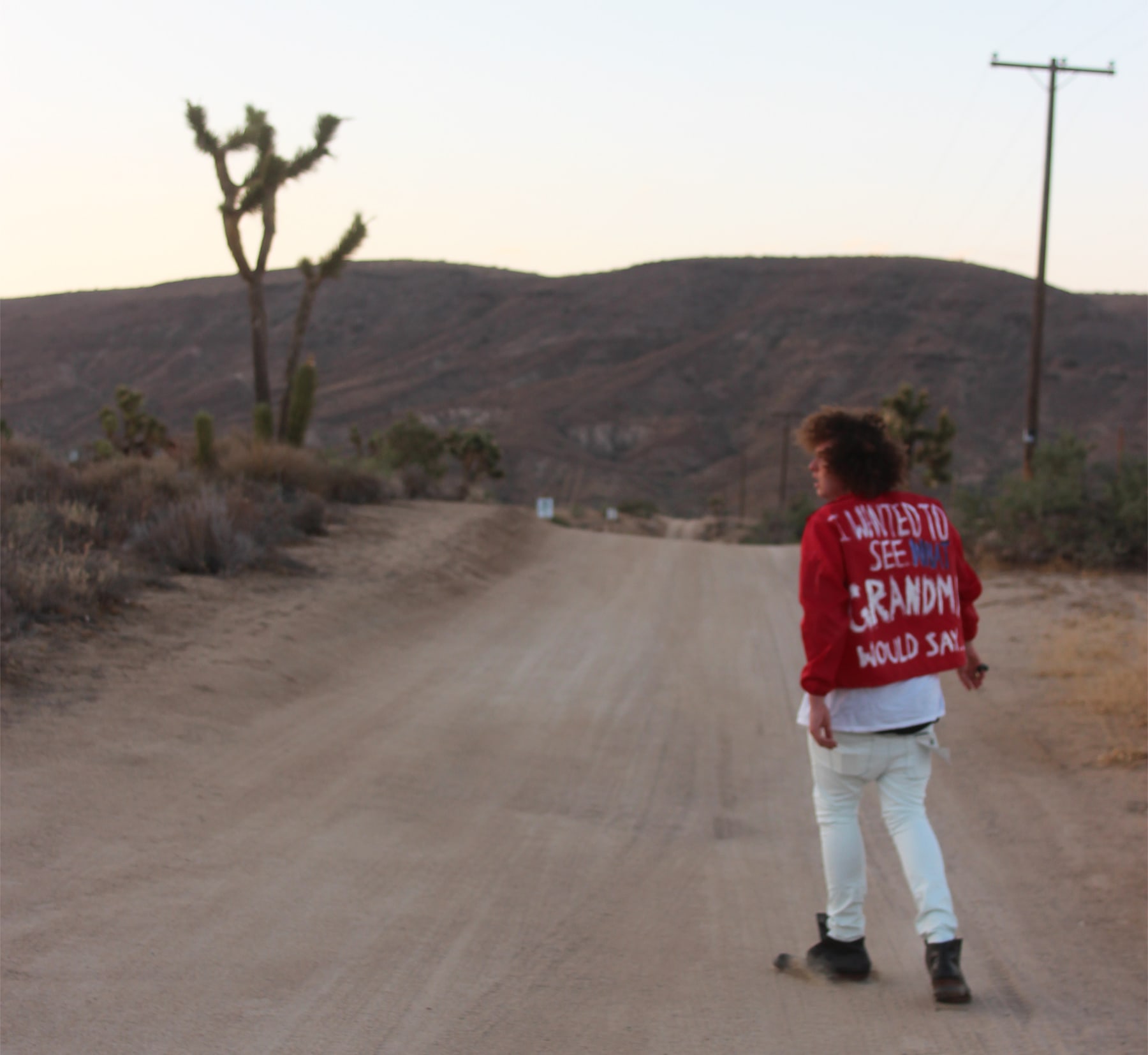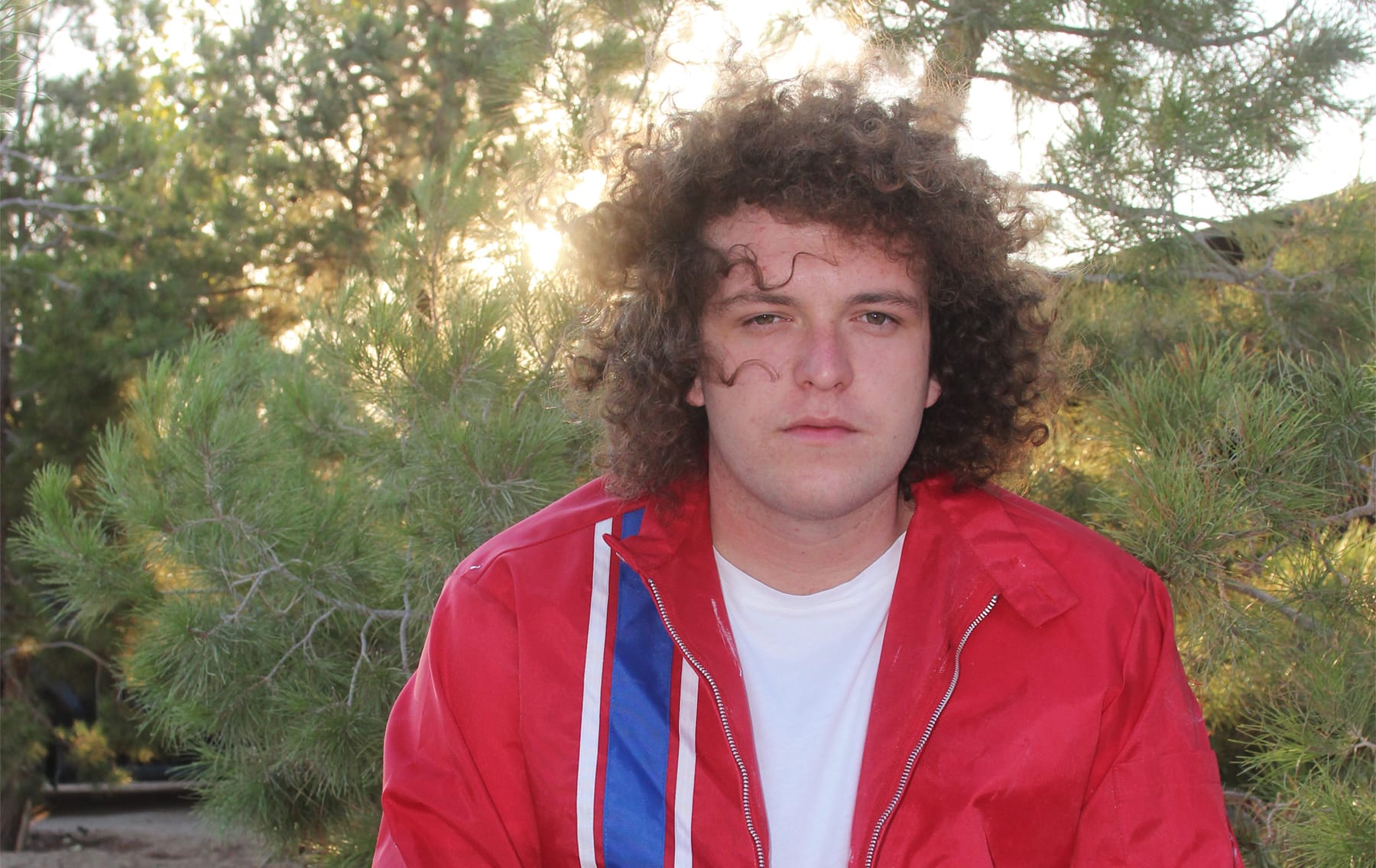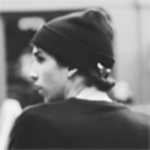You might recognize Pablo Dylan's name from headlines in the early 2010s about "Bob Dylan's rapping grandson."
After releasing his first mixtape, 10 Minutes, as a 15-year-old in 2011, Dylan managed to carve out a prospering career for himself. He earned production credits on songs with artists like ASAP Rocky, OG Maco, and Brent Faiyaz—pulling off the difficult task of climbing out from under those "rapping grandson" headlines. But with time, he grew disillusioned with the process of creating songs just to please A&Rs and being told to focus on sales projections instead of artistic integrity. So he quit.
Pablo Dylan took a step back and reevaluated everything. He looked around at the rest of the country and realized "we live in a different America than we lived in when I was writing some of those older songs." In an attempt to contextualize what was happening, he looked to the past and zeroed in on the Civil War. Specifically, he developed an appreciation for Ulysses S. Grant's enduring courage to fight for a better world.
"Where it really came full circle for me was thinking about the idol of my childhood, Kanye West," Dylan says. "I realized that he and General Grant are actually the exact same person: People with an idea of what a better world looks like. And they're out there fighting for it every single day."
Inspired to do the same, Dylan holed up and began writing songs that held a different weight than his hip-hop music. In turn, the songs ended up taking the shape of folk rock records. More similar in style and tone to Bob Dylan's music than his old material, these songs will likely draw comparisons to his grandfather, but Pablo says that was the furthest thing from his mind during the creation process. This is what naturally poured out of him after years of frustrations with the industry. "This was just me and my friends with some guitars in a room," he explains. "It was a bunch of reading, trying to understand what's happening today, and making records about it. It felt much more important than the other stuff."
"Back then, I was a kid searching for adventure and I think I found it," Dylan says, reflecting on his transition away from hip-hop. "Now I'm a young man trying to figure out how the world works. The story begins here. That was my childhood, but this is the first chapter in the story."
Listen to his new song "Eye Of The Storm" and continue for our full interview with Pablo Dylan.
"Eye of the Storm" sounds a lot different from your earlier hip-hop songs. Why did you decide to switch things up?
I think we live in a different America than we lived in when I was writing some of those older songs. To understand the present, I really had to go back and look at the past to see what led to these things. That really reached its apex for me once I got to the Civil War, which I believe is kind of the defining moment in terms of our country's character and its ability to change. There are so many great characters in it—Frederick Douglass, Lincoln, all these larger-than-life personalities.
But, in particular, the one who really caught me was Ulysses S. Grant. Pretty much every night, in the wee hours of dawn, I would think about him, and I would think about him in two particular moments. One when he was crossing the Mississippi during the Vicksburg campaign, when I thought he really became who he was. Then after that, he gets control of the army and in the wilderness, he writes to Lincoln that there would be no turning back. The man had an incredible sense of courage and he exhibited this every single time he could.
Where it really came full circle for me was I was thinking about the idol of my childhood, Kanye West. I realized that he and General Grant are actually the exact same person: People with an idea of what a better world looks like. And they're out there fighting for it every single day. That really hit me hard once I made that connection. Nowadays, people don't really write songs like they used to.
I was producing a lot of really good hip-hop and pop stuff. Working with Rocky, he's incredible. Goody Grace, incredible. Brent Faiyaz, incredible. I got to work on some great stuff. But the truth of the matter is, lots of songs are from A&Rs. These are people who don't know anything about music. They're trying to identify which records sell the most and I think it's really disgusting. It results in a much worse product.
What, specifically, drew you to the folk sound instead of hip-hop?
I talked about General Grant first, because it really started with the songs. Once I had the songs, I worked with James Harte, who I used to produce hip-hop stuff with. He plays guitar and I play guitar. We started working on these records and it wasn't really a conscious thing of, "I want to make folk rock records." In fact, I don't really see them as much different from what I was doing before. At the end of the day, all music is just rhythm, chords, melody, and words.

Technically, there are some differences between making a guitar-based folk song compared to a hip-hop song, though. How difficult (or easy) was the change for you?
I would never say it was easy, because from a very young age, I've always been really obsessive about my work and I take it very, very seriously. So it definitely was a lot of hard work. But I did grow up on Hank Williams and The Clash, just as much as I grew up on Kanye and Eminem. Those records have always been with me—guys like Robert Johnson and Woodie Guthrie. These are great songwriters. Again, it was so natural that it's almost hard to look back on making the record. I think any person who really writes songs by trade and by craft will tell you that you don't really know how you come up with this stuff. It's almost like lightning. It's incredibly intangible and hard to describe.
How long ago did you start working on these songs?
When I took a break from producing—so probably around last January. Coming into this process, I can't state enough how disillusioned I was with what the music industry is today. It's really a joke.
back then I was a kid searching for adventure and I think I found it. Now I'm a young man trying to figure out how the world works.
Where did that disillusionment come from?
When you're trying to be a music industry producer, what happens is, it's tough to get placements. You have to get on these big major label records, and the way that works is these companies hire people. You have no idea where they get them, but they're the A&Rs. They empower these people to buy records for the artist. What they're looking at is: What does the radio sound like and how close is this to what everybody else is doing? Is this going to go over people's heads?
I personally do not believe that those should ever be the main considerations when talking about art. I think it should just be about the records. There were so many situations of me trying to push artists to do what they really wanted, then A&Rs would cut me out of sessions and all this sort of stuff. After awhile, it really becomes troublesome, because you realize most people in the music business don't care at all about the quality of the records that they're putting out.
At a certain point, it was just, enough is enough. I saw a blind man play guitar at this bar in Los Angeles and for some reason it really struck me. It sat with me for a couple days. Then we just started making these records. I think we were all so fed up, and this was a really great thing for us.
What was it about the new music appealed to you? The fact that you could do it on your own?
Yeah, I can call the shots now. On a song like "Eye of the Storm," if I had tried to send that to an A&R, they would laugh at me. They would tell me that no one wants to hear anything serious and that you have to make music people don't have to think about. You have to make music just like everybody else.
This was just me and my friends with some guitars in a room. And it was a bunch of reading, trying to understand what's happening today, and making records about it. It felt much more important than the other stuff. You know, I would hope to inspire artists everywhere to fire their A&Rs.

Along with the new sound, it also looked like you removed all of your old music from streaming services and wiped your social media. Why?
I think back then I was a kid searching for adventure and I think I found it. Now I'm a young man trying to figure out how the world works. The story begins here. That was my childhood, but this is the first chapter in the story.
You did keep your name, though. Did you ever think about changing it along with the new sound?
Well, it is my name. I guess you can change your name these days, but it doesn't change who you are, and I'm definitely not ashamed of who I am one bit.
When people hear this new music, there's a good chance they're going to bring up comparisons to your grandfather. Did you think about that as you were making it?
The funny thing about that is, I actually didn't at all. It wasn't until I finished the record that some people suggested that. I was just really thinking about writing songs for the guitar, and they kind of came out like that. As shocking to people as it might be, that context does kind of confuse me a little bit. But people say a lot of things about a lot of people and I try not to get caught up in that sort of thing.
it's music for all Americans. It's not just music for the radio, and I think people want this stuff. I think they crave this stuff, but they're not being given it.
Your family's musical legacy has always been a big part of your story—in the media anyway. How do you feel about that currently?
Whenever anyone brings up stuff like that, there really is a lot of tremendous music being force-fed down people's throats, and I would like them to be more concerned with the quality of the songs.
I've heard you say in the past that you have an almost obsessive work ethic. Was that what the creation of this album like?
Me and James and Darren got in the studio and worked on these songs every day. I write all the songs by myself and we do the music production together. Sometimes I would be writing on guitar and sometimes writing to tracks. But again, how did it come together? That's a question I ask myself every day. What I've figured out is, how does the painter paint? How does the farmer farm? It's sort of the age old, eternal question. It's something that just happens. Like I said before, it's like lightning striking. You just hope it strikes you.
Without giving too much away, what were you trying to communicate on this album, lyrically?
America is a land that's rich in idea. It has a creative tradition with many artists and songwriters—everyone from Basquiat to Hank Williams. Edgar Allen Poe to Michael Jackson. That idea is what many people have fought and died for. The American experience, however, is one that is deeply rooted in paradox. War and peace. Science and religion. Freedom and tyranny. It is this conflict, in my opinion, that makes America a full on force of freedom. With the brashness and vulgarity of all of its peoples. In this current climate, the temperatures are really getting hot and I think a lot of people are feeling it. Within this conflict, will we find that balance or will we descend into chaos? To me, that is the question of living in this current day and time. I think it's one we all have to grapple with.
So, is that what you're trying to work through in these songs? What are you trying to communicate in the songs themselves?
That's what I was thinking about as I was making this album. With the music, it sort of just comes out the way it comes out, and you can't really control it too much. But I try to think about each song as a play. How did Shakespeare think about doing Henry V and Romeo and Juliet? Two completely seemingly different plays. It's really hard to put your finger on, you know?
Hip-hop is the most popular genre right now, but it feels like there has been some exciting energy from young artists in the rock space recently—with kids making cool stuff on their own in their bedrooms. As someone moving from hip-hop to folk rock, have you seen the same? What makes you excited about the change?
What makes me excited about it is that it's music for all Americans. It's not just music for the radio, and I think people want this stuff. I think they crave this stuff, but they're not being given it. It's interesting you say that about a sort of resurgence of rock and folk at all. I think the reason some people aren't making it is because when you get in these rooms with labels and publishing companies, they'll tell you it won't work, because it's not working.
Our generation is important. We have incredible kids, as you said, making music in bedrooms everywhere—all across the country. I want more of those kids. Those are the people who have the power to change things.
For some people, the idea of "Pablo Dylan" comes with some history and preconceptions. What would you say is the biggest misconception about you?
I think people think I'm some sort of clown painting paintings on the sidewalk, but in truth, at this point, I've worked with the best of them and I've held my own. Misconceptions are a funny thing, you don't know where people get this stuff sometimes. Luckily enough, when people come up to me, they usually want to talk with me about a record I produced or a song I did or something like that. I'm thankful that a lot of those misconceptions have gone away.
Heading into this new phase of your career, what are you the most excited about?
I'm really excited for people to finally hear the full record. I've been working on it for a long time. And I'm also very excited for people to see the show. I've been playing a bunch of shows around LA and it's been great. I'm excited to play in cities across the country.

